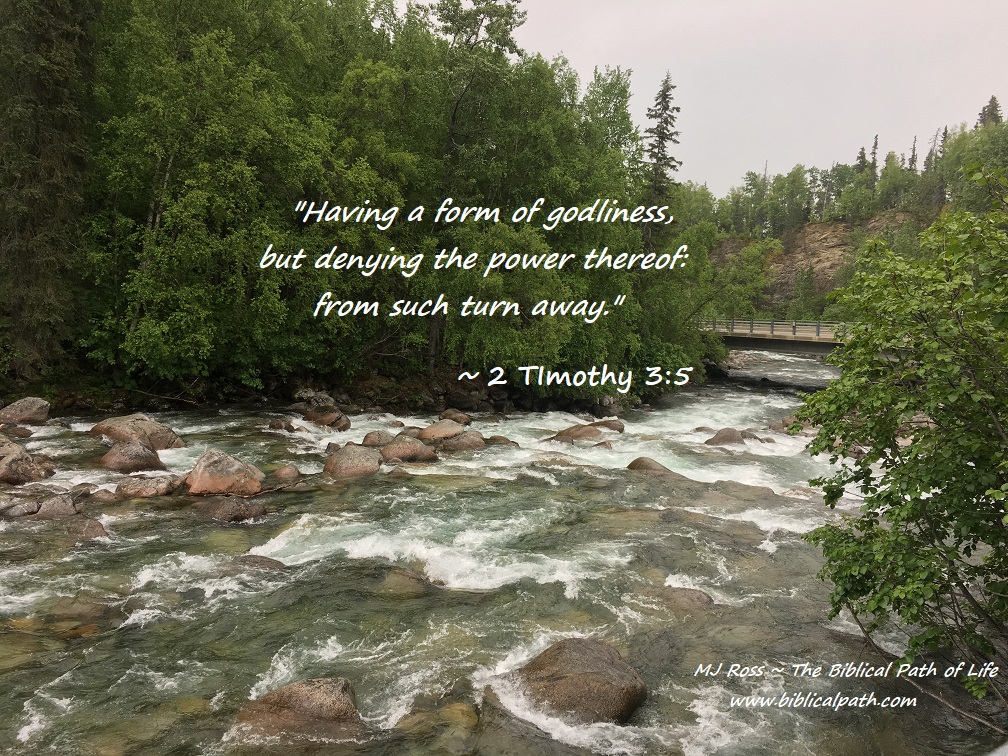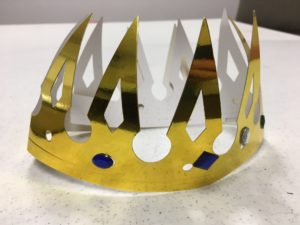
“I have heard of thee by the hearing of the ear: but now mine eye seeth thee.”
Job 42:5
When Nebuchadnezzar had a dream that troubled him, he called his wise men to tell him what his dream was and what it meant. When Daniel was called, he told the king that no man could tell the king his dream and the meaning, but the answer to his dream came from God in heaven (see Daniel 2:28). After Daniel revealed the dream and its meaning, we read King Nebuchadnezzar’s first acknowledgment that the God of Daniel is the one true God. “The king answered unto Daniel, and said, Of a truth it is, that your God is a God of gods, and a Lord of kings, and a revealer of secrets, seeing thou couldest reveal this secret” (Daniel 2:47).
After the dream of a great image (where his kingdom was the head of gold), Nebuchadnezzar, the king, made a huge image of gold (see Daniel 3). The people were commanded to fall down and worship that golden image when they heard the sound of the music (see Daniel 3:5). Anyone who did not worship it would be cast into a fiery furnace (Daniel 3:6). When Shadrach, Meshach, and Abednego did not fall down and worship the image, someone told the king (see Daniel 3:12). Though they were captives in a foreign land, and they were rulers there, they had chosen to serve the one true God with their lives.
King Nebuchadnezzar was angry (see Daniel 3:13), but he gave them a second chance to bow to the golden image – with the warning, “but if ye worship not, ye shall be cast the same hour into the midst of a burning fiery furnace; and who is that God that shall deliver you out of my hands?” (Daniel 3:15b). Read their answer, “17. If it be so, our God whom we serve is able to deliver us from the burning fiery furnace, and he will deliver us out of thine hand, O king. 18. But if not, be it known unto thee, O king, that we will not serve thy gods, nor worship the golden image which thou hast set up” (Daniel 3:17-18).
Not only did God spare their lives, miraculously, but Nebuchadnezzar acknowledged God as the most high God. This is the second time recorded that Nebuchadnezzar recognized God, and His dealings in the lives of the young men from Judah. Nebuchadnezzer said, “Therefore I make a decree, That every people, nation, and language, which speak any thing amiss against the God of Shadrach, Meshach, and Abednego, shall be cut in pieces, and their houses shall be made a dunghill: because there is no other God that can deliver after this sort” (Daniel 3:29).
Daniel chapter four is different. It is written by King Nebuchadnezzar. It begins with a declaration from King Nebuchadnezzar that this is his personal testimony of how he came to know the one true God.
It began with a dream of which none of his wise men could declare the meaning. “But at the last Daniel came in before me, whose name was Belteshazzar, according to the name of my god, and in whom is the spirit of the holy gods: and before him I told the dream …” (Daniel 4:8). Notice that Nebuchadnezzar acknowledged that he had named Daniel after his god, but he recognized that the spirit of the one true God was within Daniel. He told Daniel his dream (see Daniel 4:10-18).
After hearing the dream, Daniel was troubled. He understood that it was bad news for Nebuchadnezzar, yet good news for his enemies (see Daniel 4:19-26 for the interpretation of that dream). Read a key part: “That they shall drive thee from men, and thy dwelling shall be with the beasts of the field, and they shall make thee to eat grass as oxen, and they shall wet thee with the dew of heaven, and seven times shall pass over thee, till thou know that the most High ruleth in the kingdom of men, and giveth it to whomsoever he will” (Daniel 4:25). Moreover, read the invitation Daniel gave to King Nebuchadnezzar. “Wherefore, O king, let my counsel be acceptable unto thee, and break off thy sins by righteousness, and thine iniquities by shewing mercy to the poor; if it may be a lengthening of thy tranquillity” (Daniel 4:27). Daniel counseled him to turn from his sins.
Just as God warned in a dream, “All this came upon the king Nebuchadnezzar” (Daniel 4:28). One year later, Nebuchadnezzar said, “… Is not this great Babylon, that I have built for the house of the kingdom by the might of my power, and for the honour of my majesty?” (Daniel 4:30). While the words were in his mouth, God spoke telling Nebuchadnezzar that, “The kingdom is departed from thee” (Daniel 431b). God proceeded to tell him that he would be driven from men to live with the beasts of the field and eat grass for seven years. It happened that same hour (see Daniel 4:33). But at the end of that seven years, recognize what happened. “And at the end of the days I Nebuchadnezzar lifted up mine eyes unto heaven, and mine understanding returned unto me, and I blessed the most High, and I praised and honoured him that liveth for ever, whose dominion is an everlasting dominion, and his kingdom is from generation to generation” (Daniel 4:34). Understand what took place. Once Nebuchadnezzar recognized the God, his understanding returned and he was reestablished in his kingdom (see Daniel 4:36). Read the declaration made by King Nebuchadnezzar. “Now I Nebuchadnezzar praise and extol and honour the King of heaven, all whose works are truth, and his ways judgment: and those that walk in pride he is able to abase” (Daniel 4:37). When Nebuchadnezzar acknowledged God and what God had done in his life, Nebuchadnezzar was changed – for now he knew God.
Nebuchadnezzar had to come to the same place Job had reached: “5. I have heard of thee by the hearing of the ear: but now mine eye seeth thee. 6. Wherefore I abhor myself, and repent in dust and ashes” (Job 42:5-6). He had heard of God, but now he knew Him.
Have you come to the place where you have not only heard of God, but know you know Him?
The only way to know God is through His Son, Jesus. Click here to learn how to know God.

